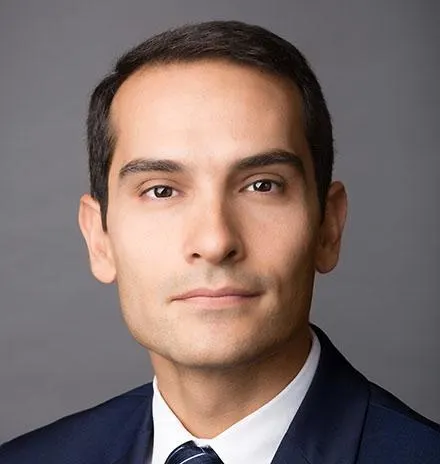Editor's note: The economy of Greece is in the depths of despair—a fitting topic for a Greek tragedy. As investor Wilbur Ross (HBS MBA 1961) has poignantly put it, "The country that brought us democracy may now take itself into chaos." We asked three Harvard Business School professors to offer their thoughts on the Greek economic crisis. Their answers were written before last week's referendum vote by the Greek people, but their insights remain valuable.
The Need For Sustainable Growth
Calling for a referendum asking the Greek people to stay in the Euro might have been a good way out of the brinkmanship of the past weeks, but not after payments to the International Monetary Fund have been missed, and European funding has ended.
These tactics have created high and unnecessary uncertainty that has brought the Greek economy to a standstill. Why pay taxes? Why pay suppliers? Why pay wages? Why pay loans? With what? What does a "no" mean? What does a "yes" guarantee?
These weeks have been a nightmare, with no medium of exchange and banks facing growing lines of depositors who want to withdraw their euros but don't know whether the ATM will have cash or if they will be able to withdraw their funds at a later date—and at what exchange rate.
This happened in Brazil in the early 1990s and in Argentina in the early part of this century, when similar desperate policies were enacted. The experience in South America of bank holidays, capital controls, and default are not encouraging. There is a mistaken view that these countries fared well after these actions were taken. In fact, acommodity boom helped Argentina reignite its economy, but not before extreme hardships took their toll—imports were extremely expensive, medicines could not be found, ordinary citizens' income was cut by a third, vulnerable groups suffered. But more important, fifteen years later, the economy continues to decay, inflation is rampant, and many people continue to suffer.
Whatever the outcome of the Greek referendum, what's necessary for the future is sustainable growth. The view that "monetary sovereignty" independence could be used wisely does not take into account that the type of government that has driven Greece to the edge of the cliff is not the type of government that would enact the reforms Greece needs to grow, including better tax collection, better infrastructure, and a better business climate.
Another ingredient that makes this situation so sad is that the Greek people want to be part of Europe, and Europe wants them to be part of the European Union. Unfortunately, the government's promises that life as the Greeks have come to know it could go on as usual were out of sync with reality. Hopefully, cooler heads will prevail in the days ahead.
— Laura Alfaro
Laura Alfaro is the Warren Alpert Professor of Business Administration at HBS. She has focused extensively on international capital flows, foreign direct investment, and sovereign debt and served as Minister of National Planning and Economic Policy in her native Costa Rica from 2010 to 2012.
Europe Needs More Europe
The game of brinkmanship that the latest Greek government has played with the Eurozone is at its end. It is a painful moment and a critical juncture for Europe. The question is not if, after all the misery, Greece might be better off without the euro (it would not) or if the Eurozone would suffer from financial contagion if it became clear that the common currency is breakable (it would). Instead, it would be better to ask how European countries can move away from petty, small disputes and think about embracing the broad idea of Europe writ large. That would help in the search for a sustainable solution to this agonizing, destabilizing, and never-ending Greek crisis.
While notable institutional progress toward the creation of a banking union and a mutual financial "safety net" has been achieved, it has come in fits and starts and is not sufficient to ensure an organic approach to the solution of European issues. In a world economy increasingly polarized between the U.S. and China, it is myopic for Europe not to seek even closer integration. It is time, therefore, for Europe to revisit the ideals of peace, democracy, unity, and prosperity that defined the origin of the European project and its attempts to unify Europe politically and economically.
Greece is clearly bankrupt—much through its own fault—and is not in a position to repay its debts in the current terms. Prime Minister Tsipras and the Syriza government have acted irresponsibly by bringing a rushed, confusing, and unfair referendum to voters, by breaking the trust with the European institutions instead of seeking a compromise, and by making Greece the first developed country to default on a loan by the International Monetary Fund (IMF).
That said, Greece needs help and cannot be abandoned. That help must be found within the European Union, within the euro, and ideally without IMF involvement. Since most of the Greek debt is owned by the official—rather than the private—sector, a way out should be easier to arrange even at the cost of bending the rules somewhat once again.
But as long as European leaders look at the next local election and their own domestic political interest rather than the big picture, no answer will be found. Securing a thriving future for Europe will remain an unaccomplished mission if the political vision and the courage to move to a closer fiscal union cannot be found. When all is said and done, however, Europe needs more Europe.
— Dante Roscini
Dante Roscini, a native of Italy, is a Professor of Management Practice and the L.E. Simmons Faculty Fellow at HBS. He joined the HBS faculty after holding leadership positions in the European capital markets groups of Goldman Sachs, Morgan Stanley, and Merrill Lynch and has broad experience in the areas of corporate finance, mergers and acquisitions, and private equity.
The Government Needs To Reach An Agreement With Creditors
Prime Minister Alexis Tsipras is right that the old political establishment corrupted Greek institutions and left the country bankrupt, and that the programs imposed by creditors have unfairly impeded the Greek economy through harsh austerity measures.
But he is wrong in his assumption that the approach he has followed for the past six months will help the Greek people. Greece is now closer than ever to an exit from the European Union. As of today, capital controls limit the ability of pensioners to reach their pensions, employees to receive their salaries, and businesses to purchase products from their suppliers.
But there is a right way forward to secure the country's membership in the Eurozone. Regardless of what many of Tsipras's critics say, more than 70% of Greek citizens want their country to be part of Europe. But to do this, the government needs to reach an agreement with creditors as soon as possible. Every day that goes by, it is getting closer to going back to the drachma or striking a worse deal with its creditors.
As the economic health of Greece deteriorates, the need for new loans and harsher austerity measures increases. Greece cannot count on other nations to pay its debt through debt forgiveness. In 2012, other countries provided loans on attractive terms with below-market interest rates, extended maturities, deferral of interest payments, and rebates on interest. This is why the present value of Greece's debt is actually a fraction of its face value.
To reach an agreement, Greece needs to build trust and confidence in its ability to become competitive again. Its European partners need to trust its leaders to reform their country and create a more inclusive economy for the prosperity of all people, not just the politically connected or the business elite. Necessary steps to ensure this include the promotion of transparency in government affairs through the adoption of high-quality standards for government accounting that will improve the management efficiency of assets and liabilities while reducing corruption. A finance minister who will lead this challenging reform needs to communicate clearly, consistently, and specifically regarding the financial condition and future targets of the country.
It's essential to build trust among investors to become fiscally independent from other governments and the International Monetary Fund and put the last six years in the book of history as lessons of what not to repeat in the future.
— George Serafeim
A citizen of Greece, George Serafeim is the Jakurski Family Associate Professor of Business Administration at HBS. He has done research most recently on corporate responsibility, integrated reporting, and sustainable investing. His work also looks into equity valuation, corporate governance, and corporate reporting issues in enterprises around the globe.





